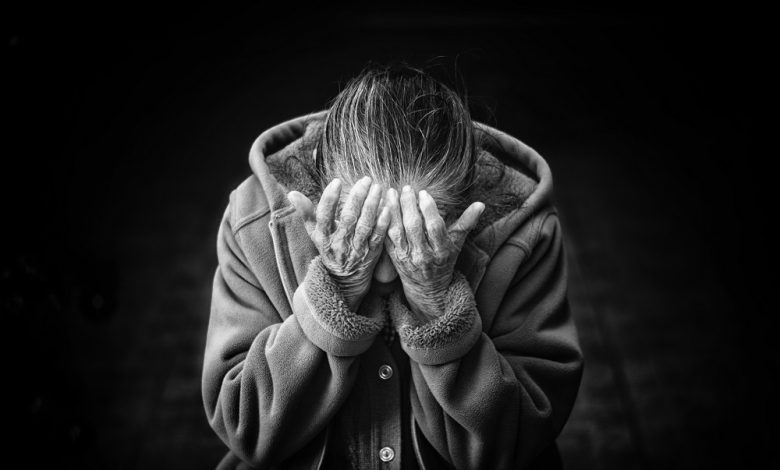
Short-term problem is major housing headache
A housing crisis, empty homes & an estimated 250,000 short-term stays listed on online platforms: Will short-term gain cause long-term pain?
There are more than a million empty homes in Australia and it’s estimated that at least 250,000 of them are listed as short-term rentals with online platforms Airbnb or Stayz.
Meanwhile, across the country, there is a national housing crisis with people struggling to find somewhere to live. Vacancy rates have fallen to record lows, and tenants face huge increases in rent, and greater competition to find a home.
This article was originally published in Resort News
Byron Bay recorded the highest rate of housing stress in NSW, coincidentally it had 15.4 percent of its homes listed as unoccupied on the night of the 2021 census. During the pandemic, Byron Bay became the country’s favourite sea change destination with an influx of cashed-up migrants putting enormous pressure on local renters. Then the loss of so many houses through flooding in nearby areas made the rental crisis in Byron Bay even worse.
Byron Shire Council has accused the NSW Government of surrendering to pressure from the short-stay accommodation sector after it went back on a decision to allow the council to cap the use of holiday rental properties at just 90 days a year. The 90-day cap was designed as a disincentive to short-term rental investors so that more housing would be pushed into the local long-term rental market. Then the cap was blocked by the NSW Government. The proposal will instead go through the NSW Independent Planning Commission.
Byron Bay is divided over the issue.
Some say that the town’s economy is based on visitor dollars. Tourism Research Australia, a branch within Austrade, estimates that the 90-day cap could see a loss of $267 million per annum from Byron’s economy. It says it could also cost Byron 1448 jobs while making little positive impact on housing stock or affordability.
Byron Bay mayor Michael Lyon told The Australian newspaper he was “surprised and disappointed” by the last-minute decision after the NSW Government had indicated council would have the final say on the cap.
“We know there has been a very strong campaign by some property owners, investors, and multinational companies such as Airbnb to bury this planning proposal,” he said.
The NSW Independent Planning Commission (IPC) will now hold a public hearing into the Byron Shire Short Term Rental Accommodation (STRA) Planning Proposal from February 21 to 23.
“Our desire to see STRA limited to 90 days in the majority of the Byron Shire is balanced and reasonable,” Mayor Lyon said.
“This is about finding a balance for our community, our businesses and the STRA sector where our community comes first, where visitors have somewhere to stay, and where workers, including those who service the tourism industry, have somewhere to live.”

A “Byron Deserves Balance” campaign gathered 1000 signatures in support of the 90-day cap, arguing that the community was facing an unprecedented homelessness crisis, with many locals pushed out by investors opting to lease homes for bigger returns on offer from short holiday stays.
A rival “Byron Deserves Better” campaign hit back with powerful statistics.
The campaign said that on average, Byron Shire received 2.2 million visitors every year. Approximately there are one million day visitors, one million overnight visitors and 200,000 visitors from overseas.
“To compare the value of each visitor, it takes 38 individual day visitors to spend the same amount of money as one family will contribute by staying overnight in a holiday home,” the campaign declared.
“The vast majority of short-term stay visitors are families, which are a high-yield, low-impact category of visitor. They are not disruptive to local neighbourhoods.”
Lawyer Col Myers, from Small Myers Hughes, has spent more than 40 years focussing on property law and says many accommodation businesses in Byron Bay are now “sitting in limbo” because of the cap dispute.
“Property owners and managers are unable to sell their businesses because they don’t know whether they’re going to be able to rent out their accommodation all year round or only on a basis of 90 days,” Mr Myers said.
“There is a lot of uncertainty.”
Mr Myers said the Byron Bay Council had been working out what areas to limit to 90 days, dividing the town with colour-coded maps.
He had been navigating those maps for the last year on behalf of his clients.
“If the properties were in the right coloured area it meant those owners could provide short-term rentals 365 days a year,” Mr Myers said, “but if they were in the 90-day zone it would kill their business overnight.
“In one case the chairman of a body corporate and the onsite manager rallied up the owners and came to us because they were just outside of the 365-day-a-year zone.
“We put our argument to council that the place has been up and running for 20-odd years and was always used for short-term letting, and that it had even paid council fees based on that.
“Council came back and redrew the map and put those people in the zone where they could provide short-term rentals all year round.
“We gave ourselves high fives and thought it would all be approved, but then the NSW Government said they were taking the short-term rental issue away from the Byron council and putting it to the planning commission. It seems no decision is going to be made until at least March.”
Yoav Tourel, the Temporary Board Chair of Directors at ASTRA, the Australian Short Term Rental Association, said his group had been “very much involved” with the council, community and accommodation operators in Byron Bay for the last six months.
He said ASTRA was opposed to the proposed 90-day cap for “two main reasons”.
“First, the NSW Government decided 18 months ago that there would be a 180-day cap on STRs. But with Byron Bay proposing on a 90-day cap it would have a huge impact on the whole community. Property managers, room cleaners, and gardeners could only work for a quarter of the year.
“We say that Byron Bay should work within the 180-day cap that the government handed down and see how that goes, examine the impact first before any changes.
“The second main argument is that we dispute the data being used by the Byron Shire Council. The council is talking about 3000 to 5000 properties being used for short-term rentals in the Byron Bay Shire but according to the number from the NSW Government we’re only talking from 1100 to 1200 properties. There is a huge discrepancy.
“ASTRA believes that there needs to be regulation in the short-term market, but we also say there has to be a balance between the needs of the council, the community and our industry.”
ASTRA claims to represent up to 50,000 short-term rental properties in Australia.
Board director Bart Sobies said it was necessary for states to implement short-term rental legislation that applied to all regions to ensure consistency.
“The legislation had to be driven by data, too,” he said. “At the moment a lot of the justification for policy is based on emotion rather than fact.
“The challenge is to do right by the community but also to create the jobs and the holiday experiences that visitors want to have.”
The University of Queensland urban geographer Thomas Sigler told the ABC there were now 251,000 short-term rental properties across Australia, representing about two percent of overall housing stock.
“In specific holiday areas such as Byron Bay, the Gold Coast or the Sunshine Coast, it gets much, much higher, up to 15 percent,” he said.

The housing problem is such in Western Australia that it has imposed a 60-day cap on short-stay rentals.
In February 2022, Noosa Council adopted a new local law for short-stay letting, to manage the impact on permanent residents and guest safety. The council established a 24/7 complaints hotline and complaints register and promised to use security services to observe and record activity at properties where required.
The new laws had seen hundreds of investors dropping out of the region’s short-term accommodation market according to Michael Harper, the director and founder of Airbnb property management company GrowHOST.
But Mr Harper told the Sunshine Coast News that there was still an opportunity for investors to make significant returns at double the rate of the property market while not upsetting local councils.
In Sydney, an eastern suburbs council wants to financially penalise owners of short-stay rentals, blaming them for driving up the soaring cost of housing.
In October, Randwick City Council voted to investigate rate variations “or other appropriate responses” for holiday rentals and look at the responses of other councils where “short-term letting is exacerbating housing shortages and affordability”.
Randwick Greens councillor Kym Chapple told The Sydney Morning Herald that Airbnb hosts were making “huge profits” by taking their properties out of the rental market, while long-term rents in the Randwick area had gone up 24 percent in the past 12 months.
Neighbours not Strangers spokesperson Trish Burt said Airbnb hosts should pay commercial rates and charges and undergo annual inspections to ensure compliance with building and safety regulations.
“An increase in rates will amount to an increase in the nightly rental charged via online booking platforms,” she said. “It will not see homes returned to the rental market.”
Ms Burt said she had no problem with people renting out apartments for short terms but only if those buildings were designated specifically for holiday or hotel accommodation.
Trevor Rawnsley, the CEO of the Management Right Industry body, ARAMA says Australia’s housing crisis has, in part, been caused by overseas-owned Online Travel Agencies taking family houses out of the rental market and making them short-stay properties.
“Every house that goes into the short-term rental market is denying a family a place to live,” Mr Rawnsley said.
“We are seeing homes that could be used to accommodate large families being turned into suburban party houses.
“These detached houses should not be in the short-term rental market, and if they are it should not be for more than 90 days which would still allow the owner to capitalise on the property over the holidays,” he said.

Brisbane City Council introduced a new rates category for short-term accommodation properties, hiking their fees by 50 per cent.
Lord Mayor Adrian Schrinner said his city currently had a severe housing shortage because not enough homes were being built to meet demand.
On the Gold Coast, mother-of-two Emily Wright told, ABC she faced homelessness as she searched for months to find a new home in one of Australia’s tightest rental markets.
Ms Wright was forced out of her rented home last year. After an exhaustive search, she finally found a new house, but with the cost of rent exploding, she had to go well beyond her budget. The 39-year-old university researcher said she had to rely on food parcels to survive and take a second job to pay the rent.
And her second job? It was cleaning Airbnbs!
Subscribe to Resort News HERE
Grantlee Kieza OAM has won three Queensland Media Awards, two Australian Sports Commission Awards and has been a finalist for the Walkley and News Awards and for the Harry Gordon Award for Australian sports journalist of the year. In 2019 he received the Medal of the Order of Australia for his writing. You can find more of his work in our AccomNews & Resort News print magazines.
He has written 22 acclaimed books, including bestsellers Hudson Fysh, The Kelly Hunters, Lawson, Banks, Macquarie, Banjo, Mrs Kelly, Monash, Sons of the Southern Cross and Bert Hinkler.







